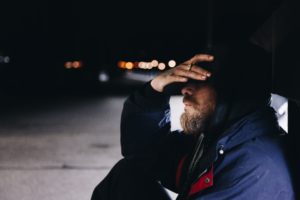Fund to help end cycle of homelessness and hospital readmission
The Department of Health and Social Care (DHSC) has announced a £16m-pilot project to support people experiencing homelessness after being discharged from hospital.
Health bosses said the objective is to end the cycle of people leaving hospital, returning to the streets and then being quickly readmitted to hospital.
Currently, patients who are homeless in hospital are more than twice as likely to be readmitted to hospital in an emergency compared with patients with housing.
A study of 3,000 homeless patients discharged after an emergency admission from 78 hospitals between 2013 and 2016 revealed almost 2,000 were readmitted within a year, at almost double the rate of those with homes to go to.
DHSC said these pilots in 17 areas, from London to Liverpool, will offer improved services to help some of the most vulnerable members of society with basic needs such as housing, employment and drug cessation, which can help them get back on their feet in the long term.
Balbir Chatrik, director of policy at Centrepoint, welcomed the funding, but warned that it fails to tackle the root causes of homelessness.
‘This money will be a welcome boost to agencies working to improve the health outcomes of those experiencing homelessness.”
‘However, continued focus on providing smaller pots of money, directed mainly at older rough sleepers, fails to tackle the root causes of homelessness and rarely translates into support for the most vulnerable homeless young people.
‘The experience of Everyone In last year suggests health outcomes are best improved when rough sleepers have safe and stable accommodation. So, while funding for the immediate health needs of those forced to sleep rough is crucial, the headlines it generates cannot replace sustained investment.
‘We know homeless young people often feel unsafe accessing support for older groups, so ring-fencing money to prevent them becoming homeless and supporting them if they are force to sleep rough should be a priority of any government wishing to end homelessness for good.’

Health bosses said people experiencing rough sleeping on average die 30 years earlier than the general population and the estimated number of those dying each year has risen by about 50% in less than a decade.
When figures began being collected in 2013, 70% of people who were homeless were being discharged to the streets rather than into supported schemes or back with families.
Health and social care secretary, Sajid Javid, said: ‘No one should ever have to sleep rough, extra support will ensure those who do not have a home can get the help they need, recover more quickly and end the cycle of readmission to hospital.
‘This government has proven its commitment to helping people experiencing homelessness throughout this pandemic, providing temporary accommodation and priority vaccines.
‘These pilot schemes will show how much more effective care can be when it’s integrated and the best examples will be taken forward to help tackle homelessness across the country.’
The money is part of a £200m shared outcomes fund approved by the Treasury late in 2019 with the £16 million already provided to the pilot schemes.
Photo Credit – Jonathan Rados







 Network
Network